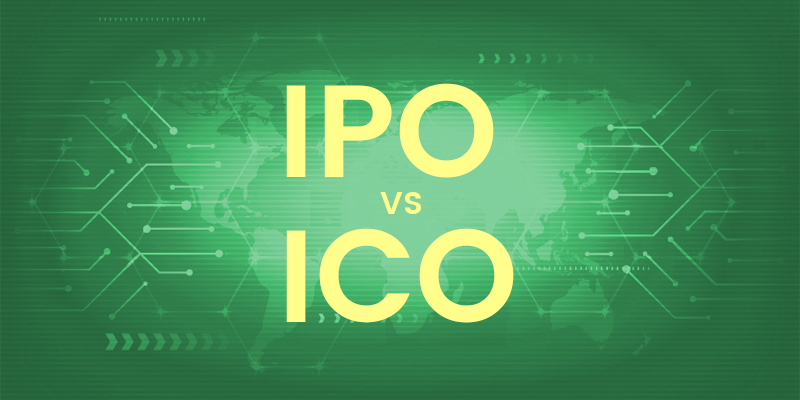The advent of cryptocurrency has definitely given us a lot of new terms: decentralized, tokens, crowd sale, ICO, and etc. ICOs stand as the vital part to embark on the conquest of new tech. IPOs and ICOs, because the names are very similar, a lot have assumed that both are quite the same. But they are different in every aspect except for one: funding. Here are major differences that set them apart.
IPO (Initial Public Offering)
IPO is the way of an established company to go public to get funding for expansion and new projects. It involves many formalities before a company can take it to the public. The revenue record, size, net worth and everything is taken into account for the eligibility.
ICO (Initial Coin Offering)
ICO is employed by start-ups to generate the funding required for their project. It is the process of creating and selling tokens. Anyone with an internet connection can buy the tokens if they find potential in the project.
What is Required?
There are a full list check-boxes for the company to fulfil in order to prove eligibility for IPO. For an enterprise to have minimum earning threshold and a good record, it has to established and well-off. The legal process might require the help of lawyers, brokers, and banks before the launch of IPO.
And then there is the prospectus, a legal declaration on the issuance of the company’s shares to the public. The prospectus has every detail on the company and the shares to help the potential investors decide of the IPO.
ICO, on the other hand, doesn’t have a regulatory framework or protocol; and most just publish the white paper to back their project. The white paper is the document detailing the project: how it works? what does it serve? what is the technology?
ICO is perfect for start-ups to bring in the fund necessary to develop and launch their product and service. And, doesn’t really require the help of banks and brokers.
Who is the investor?
In IPOs, only a little part is left for retail investors as the mountainous investing is performed mostly by banks. But, owning a stock of a company is having a stake in the company. Shareholders receive dividends every year based on the company’s performance and the number of stocks they own. They can also sell their stocks when the share prices surge to make profits.
ICO doesn’t come with dividends or a stake at the enterprise, and it basically varies with the company: buy/sell the token when project gets succeeds, or access to the company campus, or receive the money by the value of the tokens you own after a certain period, or whatever is furnished in the white paper. The crucial factor is that anyone with internet can invest.
What is to be trusted?
It consumes an awful lot of time to set up an IPO for there is a dictionary of legal compliance to be agreed upon. It can take up to six months for a company to come out with IPO which in turn adds up to the credibility of the company. After all, taking such a long time to undergo such checks cannot go wrong, right? Well, it is not.
ICO doesn’t require much of the time and is entirely dependent on the company. Most gets wind up in just a month or less while there are also a few cases that exceeded a couple or three.
Most consider IPO to be reliable; some even extended ICO to be a scam. But no one can deny the fact that even a well established, licensed, and successful company go bankrupt. The gravity lies in your choices of the company and project as the risk is the same in both the cases. Thorough and meticulous research before the venture can be highly beneficial and help reduces the possibility of losses.

